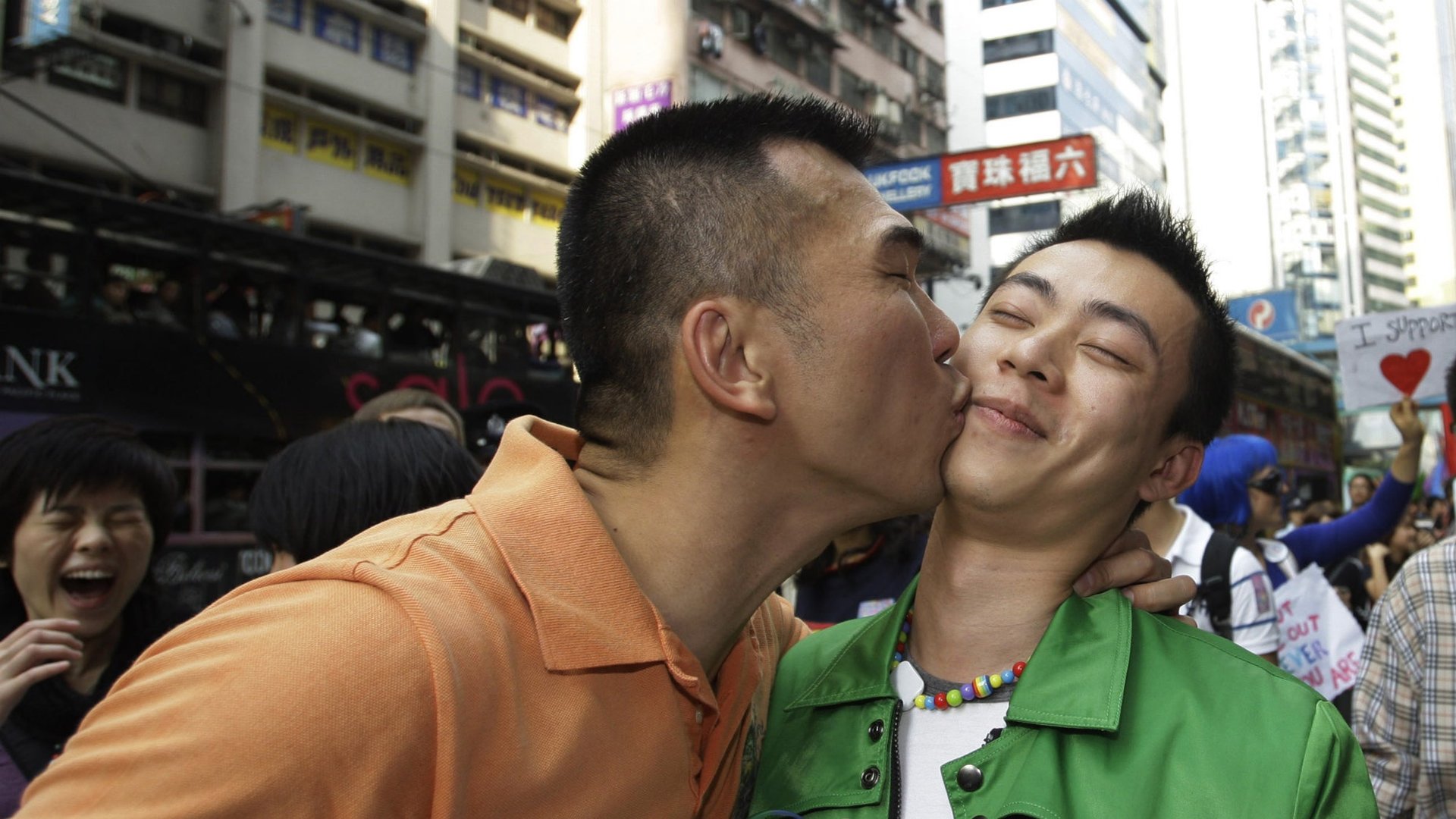China could fix its oversupply of men by letting gays marry
Yesterday, 100 Chinese parents called for their government to legalize same-sex marriage when it meets next week.


Yesterday, 100 Chinese parents called for their government to legalize same-sex marriage when it meets next week.
There is pretty much no chance of that happening; homosexuality itself was illegal in China until 1997, and was categorized as a mental illness as recently as 2001. But here’s the pitch advocates should be making: Legalizing same-sex marriage isn’t just about gays. It would also help solve a China’s hugely problematic gender imbalance.
China has tens of millions more men of marriageable age than there are women. Known as “bare branches,” these guys pose a big potential threat to social and economic stability. For instance, economist Lena Edlund projects that a 1% increase rise in the gender-gap ratio leads to a 6% rise in violent crime and vandalism. China also has a long history of social unrest (pdf, p. 17) resulting from gluts of men—not to mention the fact that they’re miserable.
Here’s how gay marriage could help the problem:
16 million straight women are now married to gay men. That’s the estimate of population scholar Zhang Beichuan.
20 million men are “bare branches.” That includes gay and straight men; Zhang estimates that 2-5% of the male population is gay.
If gay marriage were legalized, a significant proportion of the marriages between straight women and gay men could end, allowing gay men to marry other gay men and returning millions of straight women to the dating pool.
Obviously there are many caveats to this back-of-the-envelope exercise. For one, there are surely many lesbians married to straight men; women marrying women would actually make the bare branches problem worse, not better. And the social shift necessary for gay marriage to become mainstream would be considerable.
But China could totally do this. The government has tremendous administrative authority, as demonstrated by the One Child policy that indirectly cause this problem in the first place. And the presence of organized religion in mainland Chinese society (paywall)—particularly any with explicit bans on homosexuality—is slight.
The biggest headwind is probably China’s cultural emphasis on carrying on the family bloodline. The government will need to publicly celebrate gay adoption, perhaps by a well-publicized adoption of one of China’s 700,000-plus orphans by a government official’s just-married gay son and his husband.
This won’t happen next week, of course—or even any time soon. The Chinese government likes to bite off reform in nibbles, and there’s no way to have “pilot cities” for gay marriage. But as gays and their parents grow more vocal, the government’s dwindling demographic options means it will eventually need to consider all options.